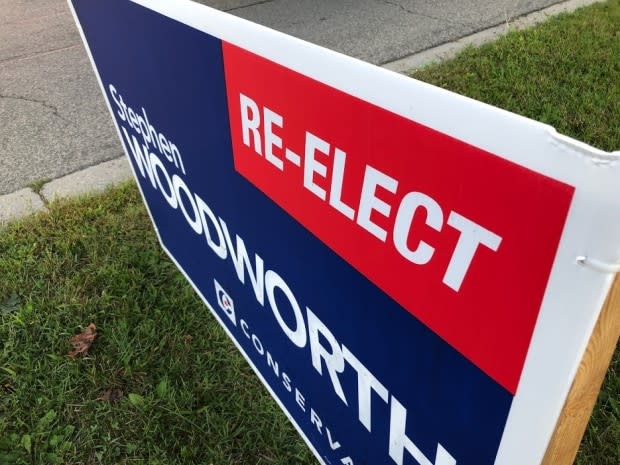Do parties even have to put out a platform? Your election questions as Week 2 begins
We've been hearing from voters across the country and expats around the world curious about all aspects of the upcoming federal election.
As leaders criss-cross the country, curiosity has been piqued. Here's what you were asking as the campaign entered its second week.
Do parties even have to put out a platform?
Technically no — though it's traditional for parties to put out some form of reading material. The NDP got their platform document out first, while the Greens and the Bloc just released theirs this week. We're still waiting on full releases from the Liberals, the Conservatives and the People's Party — they promise they will come in the next few weeks.
So what's the holdup? Alex Marland, a political science professor at Memorial University, said these documents take a long time to put together. He thinks the incumbent government could be at a disadvantage.
"When you are in government, you're sticking around, doing more of the same," he said. So a platform can become a regurgitation of what you've already done or promised rather than specific new policy.
Former NDP Leader Jack Layton famously grilled then prime minister Stephen Harper during a 2008 election debate asking "Where's your platform? Under the sweater?"
This is also the first year the Parliamentary Budget Officer is costing out party promises. Some parties are making use of that service in tandem with announcing policy, yet another step to take before going public.
Who is allowed to use the term re-elect on campaign signs?
We've been flagged multiple times to Conservative candidate Stephen Woodworth's signs in Kitchener Centre. They've got "re-elect" on them. Woodworth was MP in the riding for seven years. The only problem is he's not the incumbent.
While some consider this misleading, what's on the sign does not fall under Elections Canada's purview. The Elections Act "does not regulate the content of campaign signs" in most circumstances. When we inquired, Elections Canada instead referred us to "the candidates and political parties."
In Woodworth's words: "It would be underestimating the intelligence of the electorate to suggest that anyone believes that I'm the incumbent. People are better informed than that."
There is some level of oversight from the Commissioner of Canada Elections, who deals with election sign complaints. If you have a problem with a sign, you can complain to the commissioner's office, which will look into each complaint on a case-by-case basis and see if it contravenes the Elections Act. That includes advertisements with certain types of false statements. Penalties can include fines or even charges.
The office would not comment on "the legality of a specific issue." "We tend not to be looking at the content per se unless it meets specific criteria," said Michelle Laliberté, a spokesperson for the Commissioner's office.

I live in an apartment/condo. Can I put up a lawn sign?
Yes — though you may not have a lawn, you still can put up a lawn sign.
If you're leasing, your property owners or the corporation can't prevent you from putting a sign up in your apartment or condo. Same rules apply if you own the unit.
However, there can be restrictions around how big the signs can be and whether they are allowed in common areas — so keep that in mind when you're picking a place for your sign.
How do I vote if I'm not at home during the voting period?
It's the most common question we've gotten since the election was called — we've heard stories about those who will be out of riding, out of province, even those temporarily living in places like the U.S. and Ukraine (shout out to the parents getting details for their travelling children!).
How you vote all depends on where you will be throughout the election period. If you are around through Oct. 15, you can go and vote for your riding at any Elections Canada office. Or you can vote in the advanced polls Oct. 11 through 14.
If you aren't around for any of that, you can vote by mail, which you can apply to do right now. If you're away, just make sure to give an address you know you'll be at so you can receive your voting kit.

Can you vote if you're on house arrest?
Yes, but how you do it depends on the conditions of your house arrest.
For those who are allowed to leave the house, you can vote during advance polling, on election day or at any Elections Canada office before Oct. 15. But if you're not allowed to leave home, you'll have to vote by mail. You can sign up to get a ballot kit sent to you now.
How do I vote none of the above if I don't trust any of the candidates?
You can't. None of the above isn't an option federally. There is no process for protesting or refusing a ballot in federal elections, like there is in some provincial and territorial elections.
If you go behind the voter screen and vote for no one or write none of the above on your ballot, your vote will be counted as a rejected ballot. Same deal if you refuse to go into a polling booth and hand back an unmarked ballot immediately.
These rejected ballots are included in the final vote count; there were 120,515 rejected nationally in 2015. However, they can't be considered votes for no one because many types of ballots are counted as rejected, including ones with multiple votes and ones that are improperly marked.
So, by percentage, which province has the most rejected ballots?
That would be Quebec — no other province or territory even comes close. More than 1.4 per cent of Quebecers had their ballots rejected in the 2015 election, equivalent to 62,271 votes.
In some ridings, the numbers were even higher. The Bloc Quebecois-held constituency of Montcalm was not only the Quebec riding with the highest percentage of rejected, it also had the highest percentage countrywide.
Almost 2.3 per cent of all votes, 1,226 of them, were rejected there.
And in case you want more:
Each week until election day, we'll be rounding up your questions and answering the most common in articles like the one you just read. If you've got a questions, send Haydn an email at haydn.watters@cbc.ca. He'll try his very best to get you an answer — or include it in a future article. Be patient. He's currently swimming in questions.


